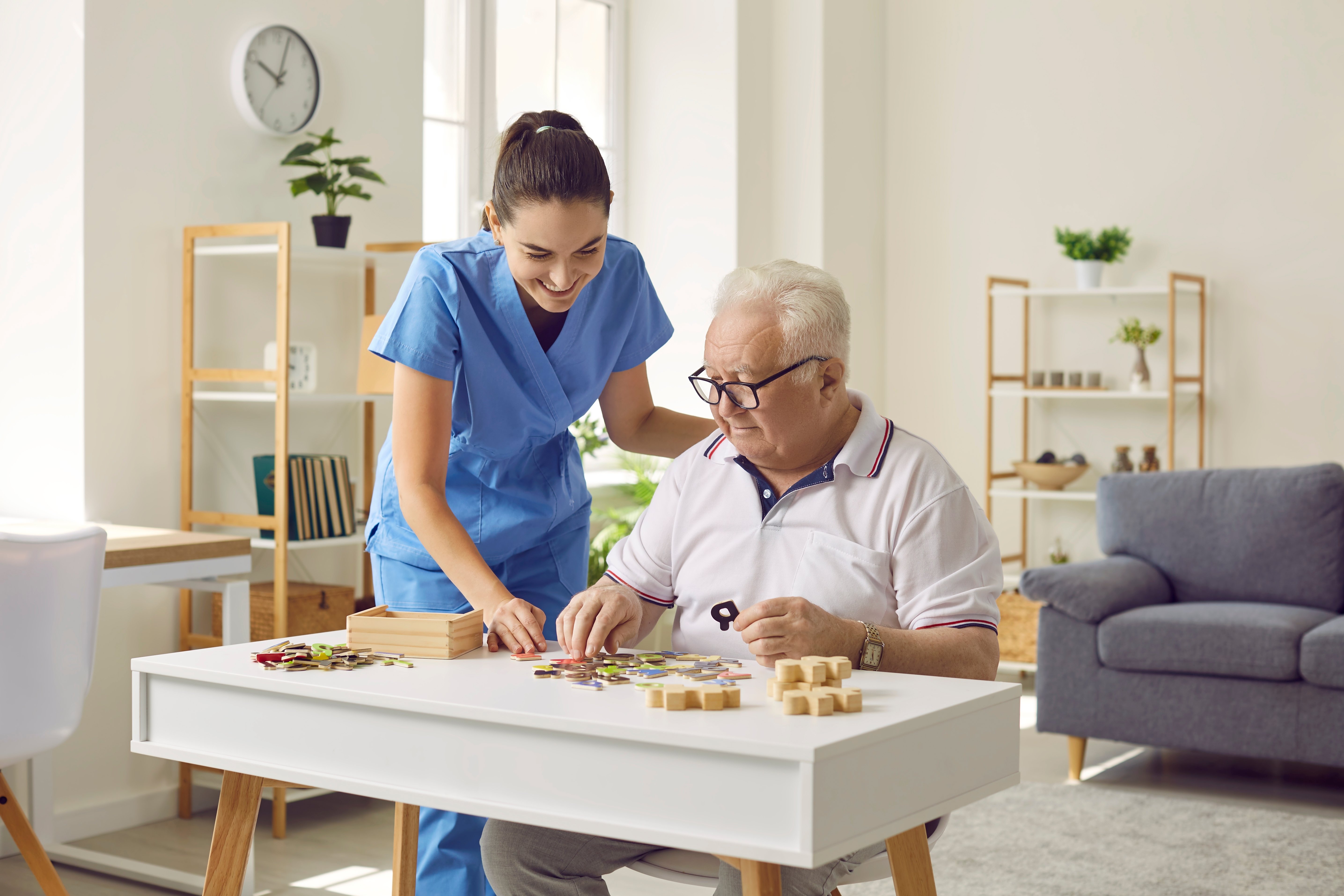Puzzles can strengthen memory, reduce feelings of isolation, and promote greater quality of life for people with dementia
When someone is diagnosed with dementia, it is a difficult time for both them and those important to them – a time filled with uncertainty and worry for the future. Worries can often centre around losing precious memories or a change in behaviour causing distress for those they love, or even losing that which makes them who they are. While there is currently no cure for dementia, there are ways that someone can mitigate and even slow down the process of cognitive decline; puzzles for people with dementia are a powerful tool that make this possible.
Through activities like puzzles, the brain is getting a full work out in various ways for both long-term and short-term benefits. By using puzzles and other activities to slow down the process of cognitive decline as much as possible, a person with dementia has the tools for greater quality of life whilst also maintaining a vital and meaningful connection not just to their loved ones and the world around them, but a connection to their sense of self.
After all, while a nutritious and balanced diet coupled with appropriate exercise are essential components of helping someone with dementia stay as healthy as possible physically, the health of the brain is just as important to achieving a holistic sense of wellbeing and quality of life. Below are just some of the ways that puzzles for people with dementia can help to make that happen.

Puzzles provide a workout for the brain
There are two sides to everyone’s brain, and each side is responsible for different things. The left side of the brain is responsible for organisation and logic, while the right side of the brain is used for creativity. Finding an activity that can stimulate both sides of the brain simultaneously should be one of the central goals when thinking about activities for people not just with dementia, but in care settings more generally.
This is why puzzles are such a powerful tool for giving the brain a complete workout. Through the process of completing a puzzle, for example a jigsaw puzzle, both sides of the brain are utilised simultaneously in an activity that is challenging but achievable. This is possible because the process of organising all of the pieces, envisioning in the mind what the picture is supposed to look like and which pieces correspond with which pieces means that the person is having to think creatively about the process, while at the same time using the problem-solving areas of their brain.
Both long-term and short-term memory abilities are tested too. In looking at a puzzle that is a work-in-progress, the resident must utilise their long-term memory to recognise colours, patterns and shapes, and how they must correspond together to make a whole picture. In short-term memory, the resident must keep track of spaces that are missing pieces, identifying shapes that correspond to areas of the puzzle. This combination of creativity and organisation is perfect for someone with dementia.
Making connections and promoting a sense of wellness
As cognitive functions begin to decline for someone who has dementia, the diminishing abilities to communicate and recall names and faces, among other issues, can lead to a sense of detachment and isolation. It’s also very common for people with dementia to feel a sense of agitation and anxiety.
But in doing a puzzle, a person with dementia has the opportunity to take part in a collaborative process, whether that is with loved ones, care staff or other residents, as they all work together to help solve the puzzle and engage in a process that can spark memories and lead to stimulating conversations. This has the potential to greatly reduce feelings of isolation and can go a long way to strengthening the connections that a person with dementia has to those that are important to them.
The benefits of puzzles for people with dementia that have already been discussed also add up to promote a sense of contentment and focus because it gives someone the opportunity to concentrate their energies and efforts on completing a challenging but possible task. Puzzles can also provide a sense of accomplishment, whether individually or as part of a group.
.png?width=5760&height=3840&name=MicrosoftTeams-image%20(3).png)
Things to consider when choosing puzzles for people with dementia
When considering the best type of puzzle for someone with dementia, it’s important to find the right balance between what is a challenge but also what is achievable. So, it’s best to avoid children’s puzzles with large pieces that are too easy to complete. But at the same time, remember to avoid puzzles that are too difficult, as this will have an opposite but equally counterproductive effect.
The level of difficulty will depend on the stage at which someone with dementia is at, so it’s worth consulting any documentation to assess what could be deemed the perfect balance. Digital care planning systems, like Person Centred Software’s mCare, can make this process simple and straightforward.
Other considerations include selecting a puzzle that could bring up positive memories. A personalised puzzle would be ideal in this situation, as it could more greatly promote a sense of contentment and also lead to meaningful conversations about the resident’s memories.
1,000 activity ideas with Oomph! OnDemand
If you’re looking for the best kinds of puzzles to keep your residents with dementia stimulated and happy, then the Oomph! Wellbeing and Activities Platform has hundreds of different options, tailored to specific categories like those with limited mobility, hearing issues or activities that are dementia friendly, that can be used to build a comprehensive and truly person-centred activities programme for residents, ensuring that they receive the best quality of life possible.





.png)

.jpg)
.webp?width=80&height=80&name=HTD%20Awards%202023%20Badge%20(4).webp)














